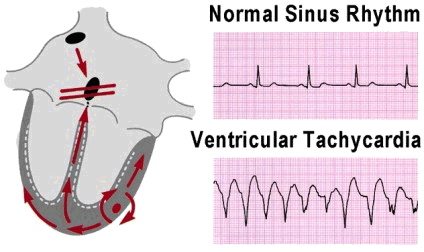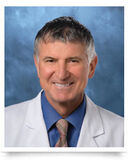Adam's Heart Valve Surgery Blog – Page 59
More About Traveling To The Cleveland Clinic For Heart Valve Surgery
By Adam Pick on September 30, 2009
As you may have seen, the recent post, Did You Travel For Heart Valve Surgery?, has generated a lot of interest and response – as over 25 patients and caregivers have commented.
I have also received several emails from patients wanting to know more about traveling to The Cleveland Clinic for heart valve repair and heart valve replacement surgery.
That said, I called The Cleveland Clinic on Monday to better understand the scale and scope of patients traveling to the world’s number one cardiac care center. I learned three great factoids (from their patient education team) that you might find interesting. For 2008:
- More than 50% of Cleveland Clinic patients reside outside the state of Ohio;
- Patients from 89 countries came to The Cleveland Clinic for cardiovascular care; and
- Patients from all 50 states came to The Cleveland Clinic for cardiac surgery.
I hope this information helps you learn more about the patient profile at The Cleveland Clinic. To get direct patient feedback about surgeons at The Cleveland Clinic, please visit our Heart Surgeon Database.
Simply type “Cleveland” into the city search field. The search results will share actual patient experiences with the following cardiothoracic surgeons – Svensson, Roselli, Gillinov, Mihaljevic, Smedira, and Pettersson.
Keep on tickin!
Adam
Ironic: Vegetarian Kept Alive By Pig Valve Replacement?
By Adam Pick on September 30, 2009
I guess this patient success story would classify as ironic.
According to The Scottish Sun, a vegetarian teenager from Scotland, who was suffering from a rare cardiac condition, is now being kept alive by a pig heart valve replacement.
Robyn Cairney, 18, of Ruckazie, Glasgow was diagnosed with aortic stenosis and regurgitation after she collapsed at the gym. Over time, the condition caused her aorta to narrow, which allowed blood to dangerously flow back to her heart. The most common symptom is shortness of breath with exertion, resulting in some patients feeling “out of shape,” according to the American Heart Association.
“It came totally out of the blue,” Cairney told The Sun. “I was at the gym and became unwell during a mile run. I couldn’t breathe and wouldn’t stop coughing. Then my lips started turning blue and I knew that something was seriously wrong.”
When the valve becomes excessively obstructed or leaky, the valve must be repaired or replaced.
“The doctors told me that I would need to have a valve taken out and replaced by one from a pig,” Cairney said. “It was a bit of a shock being a vegetarian, but I realized it was a life or death choice. Obviously everyone is going to pick life, so now I’m a vegetarian being kept alive by a pig.”
Cairney was fitted with the pig’s valve during open heart surgery at the Golden Jubilee Hospital near Glasgow. This type of valve replacement could last for 20 years. Cairney may have to undergo surgery in the future to have a mechanical valve fitted.
“I’m just glad I can get on with my life now and am determined to make the most of everything I do,” she added.
Keep on tickin’ Robyn!
Adam
“Did You Travel For Heart Valve Surgery?” Asks Carol
By Adam Pick on September 25, 2009
I just received a great question from Carol about traveling for heart valve surgery.
She writes, “I have concerns about choosing a hospital that is highly regarded for heart valve replacement surgery but out of town. Have any of your readers traveled significant distances for their surgeries? Were there any problems? How did they handle follow-ups? Thanks, Carol”

Carol raises a very good point. In fact, her email reminded me of my gut reaction when I was diagnosed with severe aortic stenosis and told I needed surgery.
“Even though I live in California, I’m going to The Cleveland Clinic or The Mayo Clinic!” I thought to myself. “No messing around… I want the best surgeon… That surgeon must be in Ohio or Minnesota.”
So you know, that is a very, very, very common thought among many of the patients and caregivers I have spoken with over the years. Interestingly enough, that thought often turns into reality for some patients. So you know, I recently learned that over 50% of heart surgery patients at The Cleveland Clinic are not residents of Ohio (e.g. Robin Williams).
However, when I took the time to research and evaluate surgeons for the procedure I wanted, I found some heart valve gurus right in my own backyard. As I live in Los Angeles, I located several, highly regarded surgeons within 10 miles from my home – including Dr. Starnes (USC), Dr. Trento (Cedars) and Dr. Shemin (UCLA).
I admit, I was lucky. This is often not the case for many, many, many, patients out there. As a result, patients must travel – by car, by plane – to have surgery done.
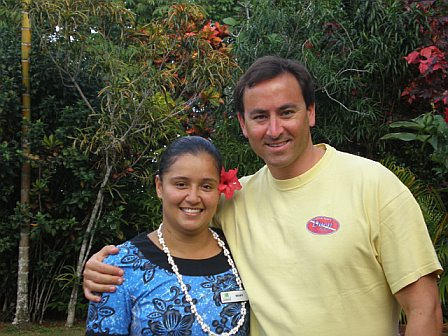
Mary Billings – Heart Valve Surgery Patient
(Traveled From Fiji To Los Angeles)
In fact, I know patients from Fiji, Trinidad, Somalia, The Philippines and Malaysia that have traveled to the United States for surgery. Recently, I featured a story about Patrick’s journey to The Cleveland Clinic from Brazil.
The points I am trying to make are two-fold.
- First, each patient case is unique. Please take the time to evaluate your surgical needs. Then, research the surgeons and hospital that provide the best care for you.
- Second, traveling for heart valve surgery does occur – and, quite frequently. That said, many hospitals have services to make your pre- and post-operative time very manageable.
I believe several of our readers did, in fact, travel for their heart surgery. If you are one of them, can you help Carol? Simply scroll below to post a comment or read other patient posts.
Keep on tickin!
Adam
“Did You Use A Recliner After Heart Valve Surgery?” Asks Kevin
Written By: Adam Pick, Patient Advocate, Author & Website Founder
Page last updated: November 7, 2023
I just received an email from Kevin about the use of recliners after heart valve surgery.
Kevin writes, “Hi Adam – At 58 years of age, it’s finally time to get the valve fixed. My aortic stenosis is now severe so I’m preparing for the surgery – both mentally and physically. One quick question for you… Does it make sense to use a recliner instead of regular bed during the early part of the recovery? I hear it can be pretty painful getting out of a regular bed. Thanks, Kevin”
This is a fantastic question for patients and their caregivers to consider. Plus, I give Kevin a lot of credit for proactively thinking about what happens when patients return home from the hospital. By the way, to learn more about stenotic aortic valves, click here.

“How Many Ross Procedures Each Year?” Asks Evelyn
By Adam Pick on September 13, 2009
I just received a question about the Ross Procedure for aortic valve replacement from Evelyn.
She writes, “Adam – The stenosis in my aortic valve is getting worse and I’m starting to feel the symptoms. My valve has been upgraded to severe stenosis from moderate status and it looks like surgery is in my future. I’m investigating my options and considering the Ross Procedure. By chance, do you know how many Ross Procedures are performed each year? Thanks, Evelyn”
Evelyn raises a great question. In fact, when I first learned of the Ross Procedure, as an alternative to traditional approaches, I thought to myself, “Sound goods. But, what is the surgical success rate of the Ross Procedure? And… How many of those procedures have been done?”
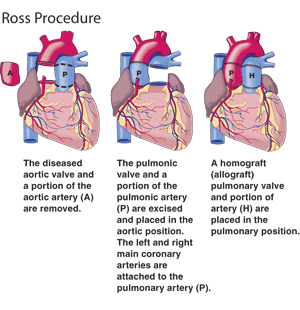
From Brazil to Cleveland, Patrick Fights For Minimally Invasive Surgery
By Adam Pick on September 11, 2009
One of the critcal learnings from my heart valve surgery experience was:
The patient (or their caregiver) must, at times, be tenacious. We must, at times, ask questions that may or may not be silly. We must, at times, stand up for ourselves and our hearts. Ultimately… we must, at all times, be our own, best advocate.
I am reminded of this belief as my inbox is often filled with patient and caregiver emails that radiate frustration and confusion. Many of these emails begin, “Adam, I really need to vent right now. I’m having problems with __________.” However you chose to fill-in that blank, I can relate.

Patrick Hightower – Heart Valve Surgery Patient
Recently, I received a patient story that illustrates just how far certain patients and caregivers will go to get the best care. Here, for your review, is the educational and inspirational story of Patrick Hightower:
The MitraClip Gets Gobbled Up By Abbott
By Adam Pick on September 11, 2009
Since my heart valve surgery, I have been fascinated by the strategic, corporate acquisitions of leading device manufacturers in this industry.
In fact, I began writing about the ongoing consolidation of heart valve manufacturers years ago. As of late, the “urge-to-merge” has really focused on the minimally invasive technologies for both heart valve repair and heart valve replacement.
That said, it was somewhat expected that a company like Evalve, with its MitraClip technology for mitral regurgitation, would be acquired. However, for some reason, I didn’t think that Abbot Laboratories would be the gobbler. I thought Edwards or Medtronic or St. Jude might be the buyer. (Then again, I think Abbot was one of Evalve’s investors.)
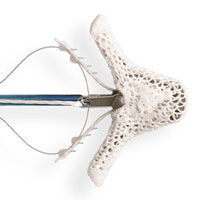
Remembering Scotty
By Adam Pick on September 11, 2009
Waking up today is never easy.
When I see the September 11 on my clock, I know I need to stop and think.
I also need to… remember.
Specifically, I remember Scott Weingard, my friend and fraternity brother. Among all the goodness in Scotty, he had an infectious laugh (more like a giggle) and positive outlook on everything. Scottie radiated possibility – both on and off the basketball court.
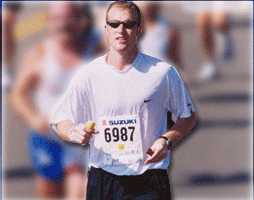
Today, like many days, I am thinking about Scotty. My prayers are with him, his family, our friends. To learn more about Scotty, please visit the Scott Weingard Memorial Website.
Keep on tickin!
Adam
Fantastic Video: Dr. Gaudiani Discusses Surgical Outcomes (Part I)
By Adam Pick on September 10, 2009
Dr. Vince Gaudiani has provided us with several insightful videos in the past. As you might recall, we recently featured Dr. Gaudiani’s two-part video series about heart valve surgery. Given Dr. Gaudiani’s 25-year career as a cardiac surgeon, this video was applauded by our patient and caregiver community.
Yesterday, I learned from Dr. Vince Gaudiani that he has created a new video titled, “How To Think About Surgical Outcomes?” Considering our ongoing discussion about (i) how to manage patient expectations and (ii) how to prepare for surgery, I found this video very, very, very interesting.
Above, you will find the first part of the video. In the next few days, I will post the second part. Simply press the play button and make sure the volume on your computer is on.
Thanks to Dr. Gaudiani for taking the time to share his unique experiences, thoughts and data. It should be no surprise that if you visit our Heart Surgeon Database, Dr. Gaudiani has received several glowing reviews from our patient community. (Just type “Gaudiani” in the last name search field.)
Keep on tickin!
Adam
“Dizzy After Heart Valve Surgery?” Asks Rick
By Adam Pick on September 9, 2009
I just received a very interesting question from Rick about dizziness after heart valve surgery.
Rick writes, “Adam – On August 7, 2009, I had mitral valve repair surgery. Two weeks after surgery I am home and walking four times per day around our neighborhood. Everything feels good except when I first stand up from a sitting position. I get dizzy even when I stand up slowly. Do other patients experience this? Thanks, Rick”
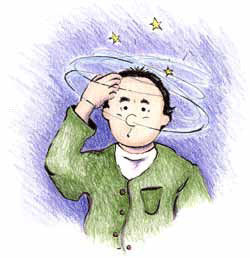
To answer Rick’s question, I can share that I too had bouts of dizziness after heart valve replacement surgery. The dizzy spells were very similar to how Rick described it… When standing up, I would become slightly off-balance for one or two seconds. To learn more about dizziness after open heart surgery, I did some research. According to MedHelp, “Dizziness is not a common post-operative problem in patients who have had heart valve replacements, so this problem may be unrelated to the valve surgery.”
That said, The Society of Thoracic Surgeons (STS) suggests that “being dizzy” after heart surgery may be related to medication. The STS notes that medicines used in the hospital can cause several side effects. The STS then lists a series of side effects (shown below) which explicitly includes “dizzy or lightheaded when standing”:
- Excessive nausea, diarrhea, constipation, or stomach pain
- Vomiting
- Dizzy or lightheaded when standing
- Confusion
- Tingling in hands and feet
- Extremely slow or fast pulse
- Skin rash
- Unusual bruising or bleeding
If you are reading this and you already had heart valve surgery, I’m curious… Did you experience any issues with dizziness following heart valve surgery? Scroll down to leave a comment and you can also read over 250 patient comments.
Keep on tickin!
Adam
Trivia Time: How Many People Are Diagnosed With Heart Valve Disease Annually?
By Adam Pick on September 9, 2009
Okay. It’s time for some good ole’ heart valve trivia.
The question is, “How many people are diagnosed with heart valve disease each year in the United States?”
a. 300,000 people
b. 500,000 people
c. 3,000,000 people
d. 5,000,000 people
e. 30,000,000 people
According to a recent, population-based study, published in The Lancet Online, about 5 million Americans learn they have heart valve disease each year.
That is a lot of people, right?
For those of you who were recently diagnosed with a valvular disorder (e.g. aortic stenosis and mitral valve regurgitation), this is one more piece of information intended to comfort you… You are not alone. Trust me, you are not alone.
Myself and the patients and caregivers who visit this site are here to help!
Keep on tickin!
Adam
In Arizona… Bruce Friedman, 76, Praises Dr. Jack Copeland After Mitral Valve Repair
By Adam Pick on September 8, 2009
There is nothing better than clicking my inbox and reading a patient success story from one of my readers! Thanks Bruce!
Hi Adam,
Just a note to give you a fast update.
Prior to my mitral valve repair on the 17th of August, we did a lot of endless research – including online information from The Cleveland Clinic, a few New York Hospitals, and, we read your book and subscribed to your blog.
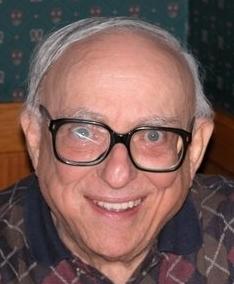
Bruce Friedman – Heart Valve Repair Patient
The Top 25 Heart Valve Manufacturing Brands
By Adam Pick on September 8, 2009
In case you missed it, Research and Markets just published their “Top 25 Manufacturers of Heart Valve Repair And Heart Valve Replacement Devices” for 2009 (shown below).
Given my ongoing interest in this market, I was intrigued by the vast assortment of company names on this list. Some of these brands were new to me. And, given the ongoing consolidation of this industry, some of the brands referenced were very familiar.
Personally, I find the power of brands ab-sooooo-lutely fascinating. In business school, I attended many classes that focused on strategic brand management and its impact upon customers, the competition and success metrics. For example, I am always amazed when I review a valuation analysis of the world’s number one brand, Coca Cola. Did you know, in 2005, the Coke brand was valued at over $70 billion dollars? (The second most popular brand, Microsoft, was valued at $59 billion.)

What Is Your “Best Piece Of Advice” For Future Patients?
By Adam Pick on September 8, 2009
Hey everybody,
I could really use your help… I’m just finishing up the 2010 revision to my book, The Patient’s Guide To Heart Valve Surgery.
As many of you know, one of the current chapters in the book is titled “The Best Piece Of Advice”. In this chapter, I feature thoughtful comments, tips, tactics, tricks and strategies from many former heart valve surgery patients.
Needless to say, it’s a great chapter with some valuable ideas. That said, I wanted to add some more quotes from those who have already had heart valve repair and heart valve replacement surgery.
So… What is your “Best Piece Of Advice” for future patients and caregivers? To answer that question, simply below to leave a comment. (Or, you can scroll down to read 15+ responses from recent patients and caregivers.)
In advance, thanks for taking the time to help out!!! Who knows… Maybe your ideas will be featured in the new edition of the book? 🙂
Keep on tickin!
Adam
“What Happens During A Transesophageal Echocardiogram?” Asks Sophie
By Adam Pick on September 5, 2009
I just received a great, follow-up question about medical tests used to diagnose heart valve disease from Sophie.
Sophie writes, “Adam – Thanks for the recent blog about cardiac MRIs and echocardiograms. Unfortunately, my aortic regurgitation continues to become more severe. It looks like I’ll need surgery soon. To better diagnose it, I’ve been told I may need a transesophageal echocardiogram. Can you tell me what happens during a TEE? Is it painful? Thanks, Sophie”
To help Sophie better understand what happens during a transesophageal echocardiogram, I was super lucky to find an educational video that details this medical examination used to help diagnose heart valve disease.
If you have never heard the term before, a transesophageal echo uses an ultrasound transducer that is positioned on an endoscope and guided down the patient’s throat into the esophagus (the “food pipe” leading from the mouth into the stomach). The TEE test provides a close look at the heart’s valves and chambers, without interference from the ribs or lungs. TEE is often used when the results from standard echo tests are not sufficient, or when your doctor wants a closer look at your heart, according to The Cleveland Clinic.
I hope that helps Sophie (and perhaps you) learn a little more about transesophageal echocardiograms.
Keep on tickin!
Adam
“Sensitive Keloid Scars? Sternal Wire Bumps?” Asks Josh
By Adam Pick on September 5, 2009
Josh has an interesting set of questions regarding keloid scars and sternal wires.
As you can read below, Josh is specifically looking for help from our blog readers. Here is what Josh writes:
Hey Adam-
Things are going great 5 months after my aortic valve replacement and ascending aortic graft. Most of the unpleasant sensations have subsided to a very manageable level. However, I do have an issue that I wanted to ask you and the blog members about…
I have two problem areas on my incision site that I saw my surgeon about today. First, the bottom of my scar has a fairly large raised keloid (shown below) which is very sensitive to the touch.
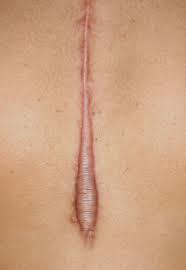
Second, the top of my scar has a prominent bump that turns out to be part of the sternal wires that were used to fuse the bone that are sticking out. Most of the time these wires are left in place, but my surgeon said they could do a removal. He further added that if we were going to remove the wires, he’d have a plastic surgeon consult and help with the re-closure of the incision so as to try to avoid the keloid problem again.
Has anyone had any experiences with one or both of these issues? My symptoms are not intolerable, but they are fairly uncomfortable. I’m not looking forward to another surgery, but my understanding is that it’s a fairly simple outpatient procedure.
To leave me a comment, please scroll below!
Thanks and hope all’s well,
Josh
“When I Wake Up In The ICU, How Many Tubes Will Be Sticking Out Of Me?” Asks Gwen
By Adam Pick on September 1, 2009
I just received a fantastic question from Gwen about waking up in the intensive care unit after heart valve surgery.
She writes, “Adam – Thanks so much for all your help. While I’m still anxious, your support has made me feel somewhat ready for my upcoming heart valve operation. I have one more question for you about the intensive care unit. When I wake up from surgery, exactly how many tubes are going to be sticking in/out of me? Keep on tickin! Gwen”
Interestingly enough, this question triggered a very, very, very unique memory for me.
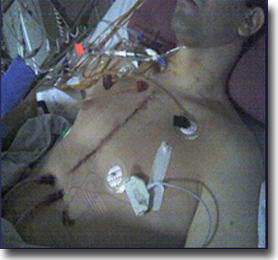
Me (Adam) In The Intensive Care Unit
So you know… My doctors and nurses did not explicitly detail the patient experience within the intensive care unit. Looking back on it, that would have really helped manage my expectation as I came out of general anesthesia.
Video: Extacellular Matrix Used In Heart Valve Repair Surgery By Dr. Gerdisch
By Adam Pick on September 1, 2009
I’m fascinated by the different tools and technologies that help surgeons reconstruct the human heart.
On this point, I just came across an interesting video about the use of extracellular matrix for heart valve repair. In this educational video, Dr. Marc Gerdisch of the St. Francis Heart Center describes extracellular matrix and how it is being used to enhance tissue function in repaired mitral valves.
The Importance Of Support Groups For Heart Surgery Patients?
By Adam Pick on August 27, 2009
Throughout the highs and lows of my heart valve surgery experience, my support group never wavered. Their commitment to me and my recovery was extraordinary considering the challenges (cardiac depression, pain management, Vicodin addiction) I faced.
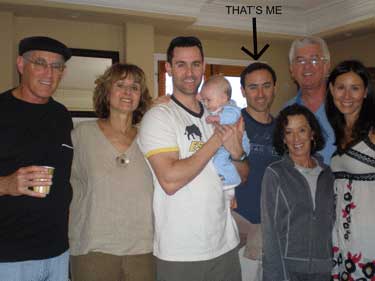
“Ventricular Tachycardia After Aortic Valve Replacement Surgery?” Asks Rita
By Adam Pick on August 27, 2009
Together, as patients and caregivers, we’ve learned that the human heart can do some odd things after valve repair and valve replacement surgery. In particular, the heart can pound a little louder, the heart can beat a little faster and, if you received a mechanical valve replacement, the heart might make a clicking noise.
That said, I just received an interesting question from Rita specific to very fast heart rates after heart valve surgery.
She writes, “Hi Adam – I have a question. Has anyone had ventricular tachycardia after mitral valve replacement. For ten months, I’ve been telling the doctors about the episodes I’m having. Finally, an episode was caught on EKG while I was on treadmill. They are now going to do an EP study and possible ablation. The doctors are looking for scarring among other things. Plus, the doctors may also look to see if anything is genetic. The VTAC episodes are really scary to say the least. Have any patients on your awesome blog experienced this? I would love to hear the outcome. I had atrial fibrillation after surgery. Now, I am wondering if it was VTAC the whole time? Thanks, Rita”
